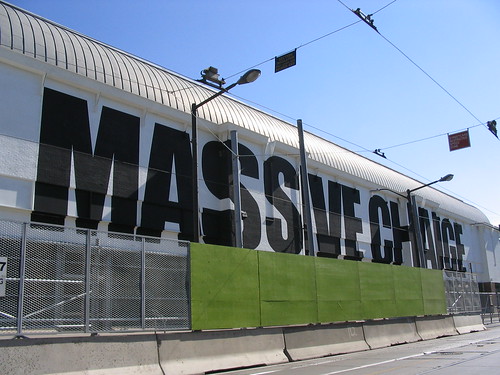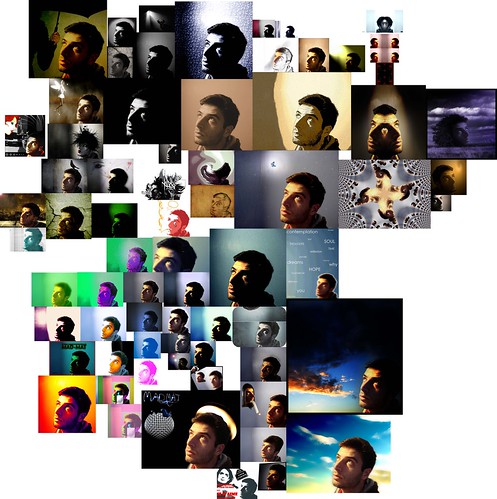 My tenth graders created podcasts in the vein of This American Life. The results were varied, but by-and-large, impressive.
My tenth graders created podcasts in the vein of This American Life. The results were varied, but by-and-large, impressive.
I’m speaking of the quality of the work, but also of the investment of the students. For the first time, truly, my students were engaging in work that meant something to them and a larger audience. We’ve blogged before. We’ve used wikis. Blah, blah, blah.
This assignment, however, was something else. They owned this. I took my hands off the wheel and trusted they’d know where to go.
One student who moved with his family to the states from Bangladesh five years ago interviewed his family on the decision to move an entire household. He interviewed his family in Bengali and had another Bengali student record a translation over the speaker. The work was fantastic and he put more time into getting the story right than I’ve seen him put into any other assignment this year. As an emerging language learner whose mastered the conversational vocabulary, but is still developing his academic vocabulary, he found a voice in this project that that has continued to augment his contributions to class discussion.
This quarter, a new project is at hand – Change the World. Admittedly, it didn’t start out with that charge. After explaining to my first section of 10th graders that they were to pick a problem in the world, work to talk to a possible change agent and present that change agent with a feasible action plan, one student raised her hand and asked, “So, basically, you want us to change the world in 9 weeks?”
I paused for a beat and replied, “I guess so, yeah.”
We’re two weeks in and their first blog posts are due at midnight tomorrow. Each student is using his or her SLA Drupal account to document the process and information. All the posts are aggregated on the class pages. Their topics are wide-ranging and sights are set high.
If you’ve got a second, drop by Gold or Silver and leave a comment. They’re finding feedback invigorating. Heck, I’m finding feedback invigorating.
More later.
Like this:
Like Loading...
 in and comment on here or here requires my kids to write 5 reflective posts about their progress.
in and comment on here or here requires my kids to write 5 reflective posts about their progress.
 My tenth graders created podcasts in the vein of
My tenth graders created podcasts in the vein of  It’s Monday night. Here I sit in my PJs with my gradebook up-to-date. I decide to reward myself.
It’s Monday night. Here I sit in my PJs with my gradebook up-to-date. I decide to reward myself.
 Our 9th Graders are working on fractured fairy tales for their benchmark. Last night’s homework was to complete their rough drafts. Because these will be incorporated into children’s picture books, there’s a word limit of 500. It does an English teacher’s heart good to have students complaining they absolutely
Our 9th Graders are working on fractured fairy tales for their benchmark. Last night’s homework was to complete their rough drafts. Because these will be incorporated into children’s picture books, there’s a word limit of 500. It does an English teacher’s heart good to have students complaining they absolutely  My 2.0 tools are running into Beta problems.
My 2.0 tools are running into Beta problems.